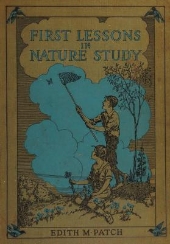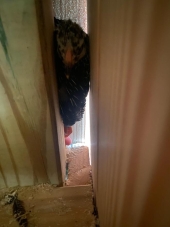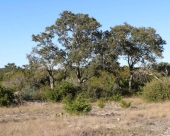 First Lessons in Nature Study
First Lessons in Nature Study by Edith M. Patch (1926)
This excellent book is just about to turn 100! My 4th grade daughter and I are halfway through it, for one of our homeschool science books this year. We absolutely love it! Miss G will thoughtfully answer the comments and questions of the author as I read the chapters out loud to her. (That's one of my tests for non-fiction read-alouds, and this one passes all tests with flying colors!). Don't think that it can't be a useful book because of its age--I myself have learned so much from it about plant and animal families that I never knew, information which never expires.
This truly is a "Living Book," written in a lively conversational style that doesn't talk down to students, but lifts them up to see things in nature in new ways.
I found a paper copy in a New England book shop this summer, and I am so glad I took a chance on it. I highly recommend printing out the PDF and using some, or all of it, with your elementary-aged students, if you can't nab a vintage copy yourself.






